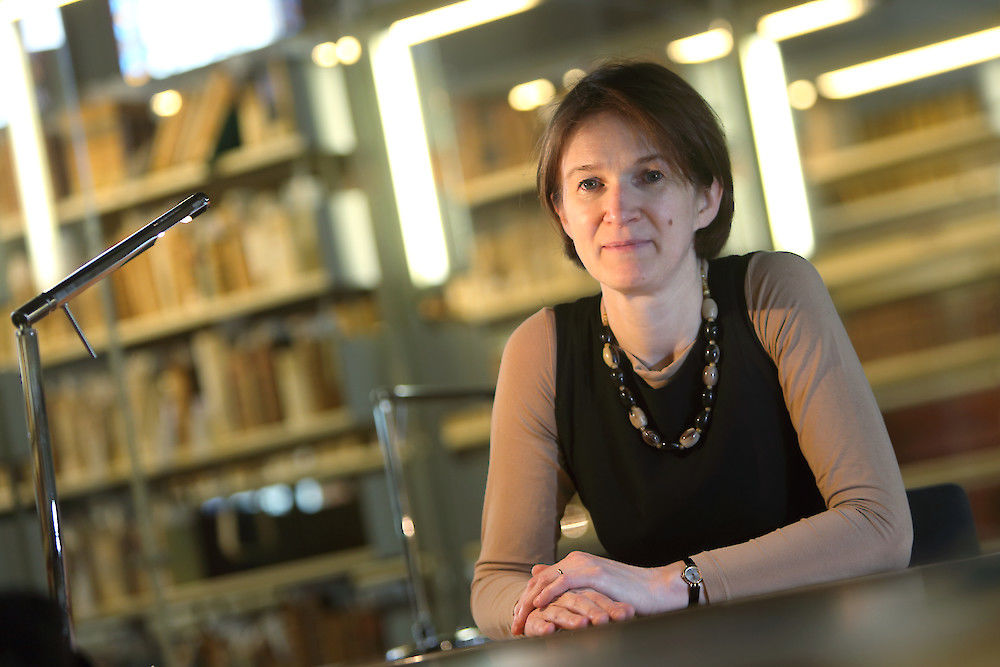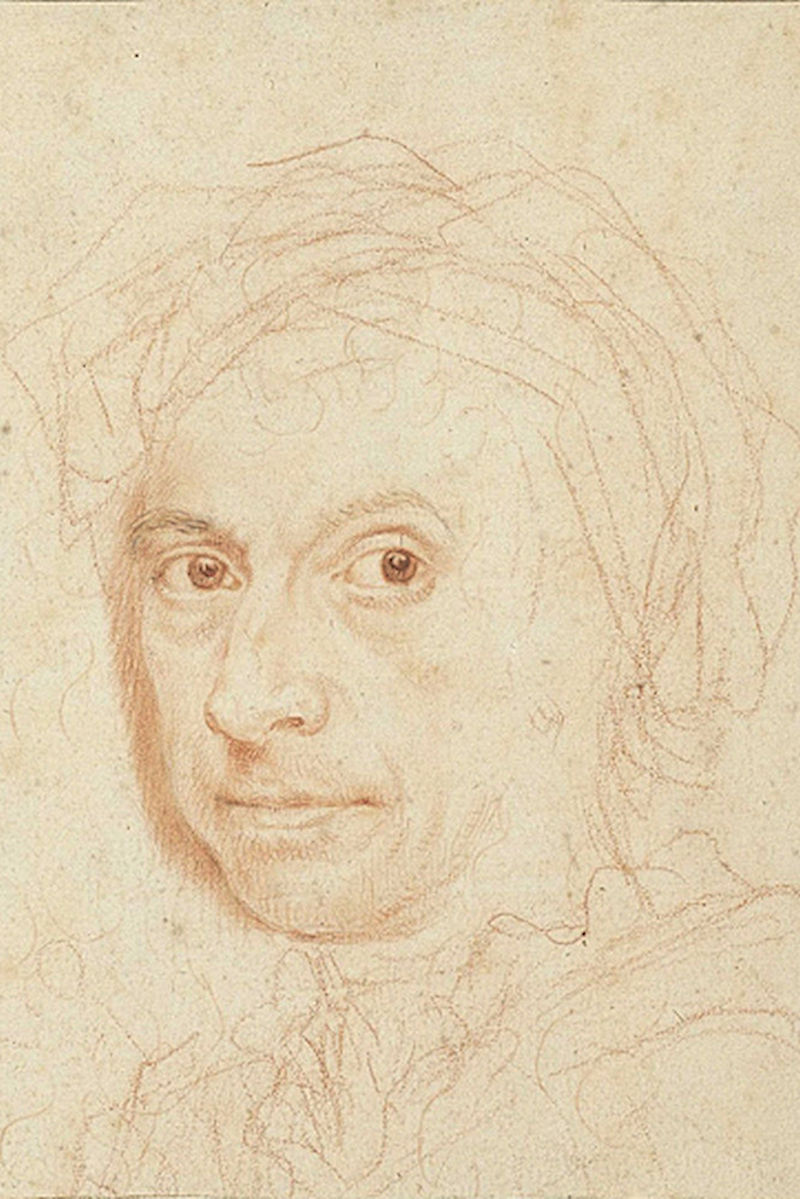A successful crossover

It’s been raining cats and dogs in Halle for two days. On this Wednesday before Ascension Day the Alexander von Humboldt Foundation in Bonn has announced the winners of the new Humboldt professorships. The Germanist, Elisabeth Décultot, is standing in the foyer of the Interdisciplinary Centre for European Enlightenment Studies (IZEA) holding an umbrella and smiling. It was also raining in Paris when she left the day before, she says. Nevertheless she will have to get used to explaining why she’s swapping the Seine for the Saale. Her reply: “Are you implying that Halle is less interesting than Paris?” She smiles again and sets off for the library where press photos are being taken.
Elisabeth Décultot first visited IZEA in 2008 when she attended the conference “Forms of Ignorance in the Enlightenment”. This was “very inspiring” she says. Her visits to Halle continued as she attended conferences and exchanged scientific knowledge with her colleagues. She began working with Daniel Fulda, a German studies professor and the managing director of IZEA. Together they have coordinated a German-French research programme and events in Halle and in Paris. Elisabeth Décultot is already well-received in Halle before she has even officially arrived here.
This isn’t very astonishing. The French literary scholar, who was born in 1968, is currently working at the Centre National de la Recherche Scientifique in Paris and is considered internationally to be the most well-connected expert in the written culture of the 17th to 19th centuries. It should come to no surprise that a French researcher would receive a professorship in German literary studies in Germany. “The fact alone shows the transformation of national philologies. The former belief that there should be an inherent relationship between literary studies and the idea of a nation has lost its implicitness,” Décultot says.

However, for Décultot an interdisciplinary approach goes without saying. She combines questions of German studies with problems in art historiography, classical archaeology and philosophical aesthetics. A successful crossover. Her book about Johann Joachim Winckelmann, the “Father of modern art historiography”, has placed research into European classicism and the history of the Enlightenment on a new footing. In essence, writing books is inextricably linked to reading books. Décultot offers meticulous proof that Winckelmann, who excerpted French, English, Italian, German, Latin and Greek works in numerous notebooks, either used these excerpts in his own work or countered these texts.
The Humboldt professor wants to demonstrate through her own work how texts and knowledge can be productively incorporated, adapted, modified and pursued in other contexts. In terms of the Enlightenment, the relationships between the languages and cultural regions in Europe have not yet been satisfactorily studied. In Halle she would like to focus on several issues and to study, for example, the transnational transfer process which depended on the book trade, translations and individual journeys in the 18th century. The primary centrepiece is an edition of the works of philosopher Johann Georg Sulzer. In partnership with the National Library in Paris, the debate on reading and writing practices of the 17th to 19th centuries should also flow to Germany. The reason: the library owns the largest collection of Winckelmann’s excerpt notebooks which are to be digitalised.
Elisabeth Décultot is a researcher through and through but one thing she doesn’t want to give up is teaching. She is looking forward to the lectures she will soon give at MLU. And, yes, she is very much looking forward to Halle which offers ideal conditions for her work. “The city itself is integral to the history of the Enlightenment and has research institutions that are very seminal for this field.” Because her two children will attend a French grammar school in Berlin, she won’t completely settle the family in Halle. However Elisabeth Décultot will maintain an apartment here. She feels at ease here. “For me the buildings from various eras are what give the city its irresistible charm.”
3,5 Millionen Euro für Humboldt-Professorin
Elisabeth Décultot wurde im Mai 2014 in der ersten Auswahlrunde der Preisträger für 2015 bei Deutschlands höchstdotiertem internationalen Forschungspreis, der Alexander von Humboldt-Professur, nominiert. Das bedeutet: Zur Finanzierung der Professur mit der Denomination „Neuzeitliche Schriftkultur und europäischer Wissenstransfer“ an der Uni Halle stellt die Humboldt-Stiftung insgesamt 3,5 Millionen Euro für fünf Jahre zur Verfügung. Elisabeth Décultot wird voraussichtlich ab dem Wintersemester 2014/15 dem Germanistischen Institut angehören und einen regen Anteil an der wissenschaftlichen Leitung des IZEA nehmen. Die Förderung soll weltweit führende Wissenschaftler aller Disziplinen, die bislang im Ausland forschten, zum Wechsel an deutsche Hochschulen motivieren.
